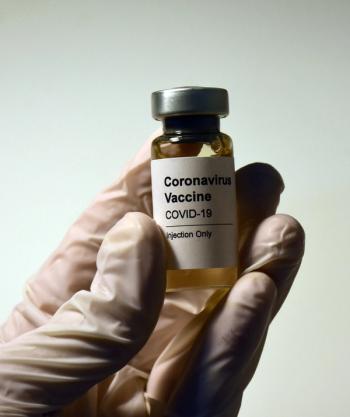
Oncologists are learning that cancer can be treated during pregnancy with relative safety in the second and third trimester.

Darlene Dobkowski, Managing Editor for CURE® magazine, has been with the team since October 2020 and has covered health care in other specialties before joining MJH Life Sciences. She graduated from Emerson College with a Master’s degree in print and multimedia journalism. In her free time, she enjoys buying stuff she doesn’t need from flea markets, taking her dog everywhere and scoffing at decaf.

Oncologists are learning that cancer can be treated during pregnancy with relative safety in the second and third trimester.

More selective BTK inhibitors like Brukinsa may give patients with mantle cell lymphoma who progressed on prior therapies another option with potentially fewer and more manageable side effects.

Detectable amounts of minimal residual disease after treatment for CLL does not mean that all hope is lost for survival without disease progression.

The FDA approved Keytruda for use with chemotherapy with or without bevacizumab, for the treatment of a subset of patients with cervical cancer.

Verzenio marks the first CDK4/6 inhibitor approved by the FDA for the treatment of patients with hormone receptor-positive, HER2-negative early breast cancer.

Patients with blood cancers may respond differently to doses of the COVID-19 vaccines based on the treatment they’re receiving, for example.

Different breast implant options and potential complications may make the reconstruction process difficult to understand, but one expert discusses the importance of knowing what you want and hopefully avoiding postsurgical issues.

Drugs like PARP inhibitors, immunotherapy and antibody-drug conjugates are making a great impact on the treatment of patients with several subtypes of breast cancer.

Certain races/ethnicities and ages may have worse outcomes in Hodgkin lymphoma regardless of variation in upfront chemotherapy.

The FDA approval of Brukinsa represents another treatment option with fewer side effects in patients with Waldenstrom's macroglobulinema, however it will not serve as a replacement for other therapies.

A first-of-its-kind trial underway in patients with penile cancer may lead to a more effective therapy sequence, potentially avoiding unnecessary surgery.

Monitoring, rather than immediately treating, patients with low-risk prostate cancer may be a better approach, says an expert from UCSF Helen Diller Family Comprehensive Cancer Center.

The impact from 9/11 continues to this day, including the increased risk for cancer in first responders and survivors who inhaled the toxins contained in the air around ground zero.

Increased use of radiation in lung cancer treatment may be a result of discoveries in research and improved spreading of information on this technology.

Keytruda is now indicated for the treatment of locally advanced or metastatic urothelial carcinoma, a type of bladder cancer, although an unmet need remains in the treatment of these patients.

The benefits obtained with antihypertensive medications in colorectal cancer may indicate potential mechanisms that act against tumor cells.

A recently approved antibody-drug conjugate provides another much-needed treatment choice for patients with locally advanced and metastatic urothelial cancer.

This contraceptive method may provide more benefits beyond contraception, but more research is needed in this area.

Frontline Keytruda plus Lenvima for advanced renal cell carcinoma is an effective treatment with life-prolonging benefits, although patients should be monitored for side effects that can be easily managed.

Patients who are immunocompromised, such as patients with blood cancers, may get the boosted immunity needed to reduce their risk for contracting COVID-19 and hospitalization for compilations related to the virus.

The indication for the PD-1 blocking antibody now includes adults with mismatch repair-deficient recurrent or advanced disease, adding to the previous indication of endometrial solid tumors.

Heating chemotherapy and administering it into the abdominal cavity allows children with desmoplastic small round cell tumors to be treated with minimal side effects.

Outcomes in patients with CLL continue to improve with the emergence of targeted drugs and immunotherapy.

Transvaginal ultrasonography may inaccurately measure uterine lining in Black women, highlighting the potential to assess its use on a case-by-case basis.

Patients who quit smoking after receiving a diagnosis of non-small cell lung cancer may have an almost two-year survival benefit than those who continued to smoke.

Articles containing misinformation on social media sites like Facebook and Twitter were more likely to be shared and liked than those with accurate information.

Although CLL follows a different staging format than other cancer types, diagnosing the disease properly can open the doors for more effective treatment and management strategies.

Patients with heart failure may have an increased incidence of cancer, which may be a result of similar risk factors including obesity and diabetes.

A modeling study demonstrated that breast cancer mortality may increase by 0.52% by 2030, but effects of delays during the COVID-19 pandemic may be mitigated by making up screenings sooner than later.

The kinase inhibitor Rezurock was well tolerated in patients with chronic graft-versus-host disease who received up to five lines of prior systemic therapy.